Five new faculty members joined the University of Houston College of Education in fall 2021, bringing expertise in perinatal mental health, second language acquisition, science education, faculty diversity and African-centered education.
The professors said UH’s diversity, “entrepreneurial spirit” and focus on research and community engagement drew them here from across the country. While the hiring process went virtual amid the pandemic, the faculty search committees adapted to a create a seamless experience.
“We’re so pleased to welcome these scholars to the College of Education as UH continues to increase its national competitiveness,” said Dean Bob McPherson. “They join a faculty committed to advancing equity through innovative research, instruction and partnerships.”
Learn more about the professors’ backgrounds, research projects and more.
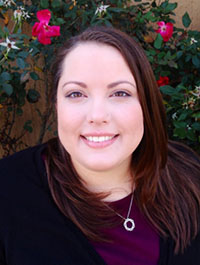
Kara Hurt-Avila
Clinical Assistant Professor
Department of Psychological, Health, & Learning Sciences
Counseling
Education: B.S., psychology, Colorado State University; M.S., counseling, University of North Texas; Ph.D., counselor education and supervision, University of North Texas
Most recent job: assistant professor at Montana State University
What drew you to UH?
UH holds a fantastic reputation for innovative thinking and community engagement. I hope to be a part of those efforts. The rich culture and opportunities to make meaningful contributions to my profession and the community are central to my interest in UH. Also, Houston is an incredible and vibrant city, so it was deeply appealing for my growing family. After spending almost a decade in Texas while in graduate school, Texas became home; it is where my partner’s family lives and it’s where our child was born.
Can you share a little about your background?
I grew up in rural southeast Colorado and went to Colorado State University for my bachelor’s degree. My mom was dedicated to instilling the value of a college education in me, as she was a first-generation college graduate. I wanted to take that further and be the first doctorate degree holder in my family.
I took a course in interpersonal process skills and found a connection with the profession of counseling. From there I wanted to expand my horizons by finding an out-of-state graduate program. That led me to the University of North Texas. The UNT program and faculty were profoundly influential on my professional and personal growth, which led me to want to pursue counselor education in an effort to pay it forward to new generations of counselors.
What are your research interests/areas of expertise?
My research has focused on counselor professional identity development. I have explored how it develops for counselors-in-training, how it is impacted by the accreditation status of master’s programs, and how it is influenced by specific course curricula and teaching practices. I have also been a part of research teams exploring professional identity development for foreign-born counselor educators.
Clinically, my specialty is perinatal mental health — counseling people through the journey of fertility/infertility, pregnancy and postpartum with an emphasis on filial and attachment-based therapies.
What is one project you’re working on that has you excited?
The counseling program faculty are working hard to obtain accreditation, and I hope to be a strong contributor to that endeavor. I have a great deal of experience with accreditation standards and documentation, so I am excited to get to be a part of that process.
What advice would you give yourself as a college student?
Invest in yourself. Figure out who you are before you try to figure out what you want to do for a career.
I feel like I rushed through college and put my effort toward academics without spending enough time developing my relationship with myself. I tended toward some perfectionism that manifested in high academic achievement, which had some distinct benefits, but I did not yet realize how my perfectionism was maladaptive and indicative of underlying emotional wounds. I later had therapeutic experiences and began to understand myself and all my experiences with clarity and compassion. We have to tell our stories to normalize and demonstrate the value of mental health and personal growth in our society. I wish I had known that earlier in my life and I wish I had seen more adults in my life do that work in more transparent ways.
If I weren’t a professor, I’d…
… be an elementary art teacher. I love working with children and I love expressive arts. I would want to teach children about the power of both process and product art as a means of self-expression. To cultivate self-compassion and growth in young people is an amazing gift to humanity.
What do you enjoy doing in your free time? Did you pick up any pandemic hobbies?
Aside from being a mom, which feels like a full-contact sport at times, I love knitting and gardening. I could spend hours and days among plants. I’m quite excited to explore the differences between zone 4 gardening and zone 9 gardening! Knitting is my more-infrequent-than-I’d-like evening pastime. I have many projects begging for some attention.
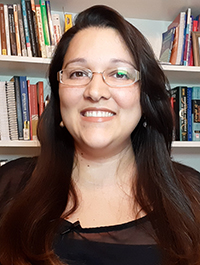
Marédil León Cedeño
Clinical Assistant Professor
Department of Curriculum & Instruction
Bilingual/ESL Education
Education: B.S., education, Universidad de Carabobo; M.A., ESL, University of Arizona; Ph.D., second language acquisition and teaching, University of Arizona
Most recent job: graduate associate in Postdoctoral Affairs at the University of Arizona
What drew you to UH?
The city’s diversity. I wanted to stay in the South, but I was ready to be in a bigger city than Tucson. I also have family in Houston, so UH was simply a perfect match.
Can you share a little about your background?
I was born and raised in Venezuela. My dad was in the military, so we moved every year when I was in primary school. At some point, my mom decided she didn’t want to move anymore, so we settled in Valencia, Venezuela, a city in the center of the country and only 30 minutes away from the beach. I started teaching in 2006 while I was still in college and worked teaching English at various levels until I decided to explore my options for graduate school.
In 2013, I got a Fulbright scholarship and moved to Tucson, which changed my life forever. I would have never been able to afford graduate school in the U.S., so I was incredibly lucky to find full funding for my M.A. and Ph.D. I am the first person in my family to earn a Ph.D., and thanks to my move to the U.S., I have been able to keep my family afloat despite the terrible sociopolitical situation in Venezuela.
What are your research interests/areas of expertise?
My research explores the impact of language ideologies in the construction of language teacher identity — exploring how beliefs about language and language use shape teachers’ professional identity and teaching practices. I am also interested in the application of culturally responsive pedagogy in language learning contexts through the implementation of non-traditional paradigms such as Teaching English as an International Language.
What is one project you’re working on that has you excited?
I am really excited about the courses I will teach this fall. I am taking a creative approach to second language acquisition theory, so I am eager to see what students think about it.
What advice would you give yourself as a college student?
To relax and trust that everything will be OK. We made it, Mare; you’ll be fine!
If I weren’t a professor, I’d…
… be a marine biologist. I’m fascinated by sea animals, and I would love to know a lot more about them and the ocean.
What do you enjoy doing in your free time? Did you pick up any pandemic hobbies?
I love spending time with family and friends. I love watching movies, trying new restaurants and traveling. Since the pandemic, I got back in touch with my crafting abilities and got interested in painting. I am terrible at canvas painting, but I realized I am actually good at ceramic painting. I now have pencil holders, coasters and a few vases to remind me of 2020.
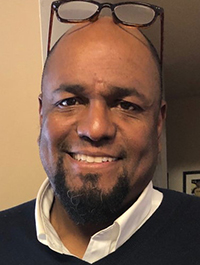
Dave A. Louis
Associate Professor
Department of Educational Leadership & Policy Studies
Higher Education
Education: B.A., psychology, Morehouse College; Ed.M., education administration, planning and social policy, Harvard University; Ph.D., educational administration, Texas A&M University
Most recent job: associate professor at Texas Tech University
What drew you to UH?
The great potential, the research, location and the population (student, faculty and city).
Can you share a little about your background?
Born and raised in Trinidad; however, New York City was home base for many years. Mother was an elementary teacher for over 40 years, and my paternal grandfather was a school principal during the colonial years. Always loved education and fell in love with higher education while attending the University of the West Indies Sixth Form School. I have over 20 years of experience in American higher education.
What are your research interests/areas of expertise?
The experience of Black faculty in higher education, particularly African Americans and Afro-Caribbean peoples. I also explore faculty diversity at historically Black colleges and universities.
What is one project you’re working on that has you excited?
One? My continued collaboration with the Universität Bremen with international graduate students from Ethiopia. Also, I am in the midst of collecting data and conducting interviews on the experience of Black faculty members at HSIs [Hispanic-Serving Institutions].
What advice would you give yourself as a college student?
Continue to follow your heart and your passion. It will work out.
If I weren’t a professor, I’d…
… be in education somehow. Honestly I can’t see myself not being a professor or engaged in the research and learning process.
What do you enjoy doing in your free time? Did you pick up any pandemic hobbies?
Free time? What is that? Traveling, cooking, music, art, golf, bike riding, going to the beach.
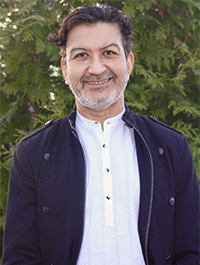
Alberto Rodriguez
Distinguished Professor of Education
Department of Curriculum & Instruction
Science Education
Education: Ph.D., science education, University of British Columbia; B.Ed., University of Lethbridge, Alberta; B.S., biology, University of New Brunswick, St. John
Most recent job: Mary Endres Chair in Elementary Teacher Education and professor of cross-cultural science education at Purdue University
What drew you to UH?
The rich cultural and linguistic diversity of the area and the opportunities of working with colleagues seriously interested in equity, diversity and social justice.
What are your research interests/areas of expertise?
Equity, diversity and social justice-driven teacher education (at all levels); critical cross-cultural science/STEM teaching and learning.
What is one project you’re working on that has you excited?
As part of a Fulbright grant, I’m working with colleagues in Costa Rica. This project focuses on cross-cultural STEM education with secondary pre-service teachers. One of the preliminary findings has widened our perspectives on critical cross-cultural awareness and teacher identity development. I look forward to sharing these insights soon.
What advice would you give yourself as a college student?
Enjoy and take advantage of every minute of your time in college because this is the more important time in your social and academic preparation as a young and independent adult. Have many friends from diverse walks of life and take extra classes outside of your of chosen major.
If I weren’t a professor, I’d…
… be a graduate student working to become a professor.
What do you enjoy doing in your free time? Did you pick up any pandemic hobbies?
Enjoy hiking, traveling and exploring new cultures, dancing, movies and good conversation. During the pandemic, I discovered some fun and creative ways to make science activities hands-on and minds-on even using true hybrid formats (i.e., some students online and some present). Never thought that would be possible. Plato was right: Necessity is the mother of invention.
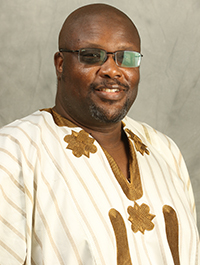
Kmt Shockley
Professor
Department of Educational Leadership & Policy Studies
K-12 Leadership
Education: B.A., African American studies, University of Cincinnati; B.S., education, University of Cincinnati; M.Ed., educational administration, University of Cincinnati; Ph.D., organizational leadership and policy studies, University of Maryland-College Park
Most recent job: professor of educational leadership and policy studies, Howard University
What drew you to UH?
The University’s research focus and entrepreneurial spirit.
Can you share a little about your background?
I grew up in Indianapolis, Indiana. I am a first-generation college student, from a “working class” family. I was not destined for academia.
What are your research interests/areas of expertise?
My research interest and area of expertise is African-centered education.
What is one project you’re working on that has you excited?
I am working in a maroon village in Colombia, South America. Maroons are groups of Africans who, during the period of enslavement, escaped from plantations and created liberated spaces for themselves and their families. Often, the Maroons would have to fight and even kill to maintain their freedom. One of my Howard University doctoral students and I created a documentary that is focused on the world’s oldest Maroon group (it can be viewed here for free); while that student graduated and is now a college professor, we continue to study the village.
What advice would you give yourself as a college student?
The time you are spending as a student shouldn’t be seen as something you just need to finish. Each day while you are a student is as much a part of real life that matters as your life will upon graduation. Don’t spend life looking forward to the next thing while you miss out on learning from and enjoying doing the things you are doing right now in this moment.
If I weren’t a professor, I’d…
… be a pianist.
What do you enjoy doing in your free time?
I enjoy playing the piano, watching football and reading books about any and all topics.
— By Ericka Mellon
— Photos courtesy of the faculty members